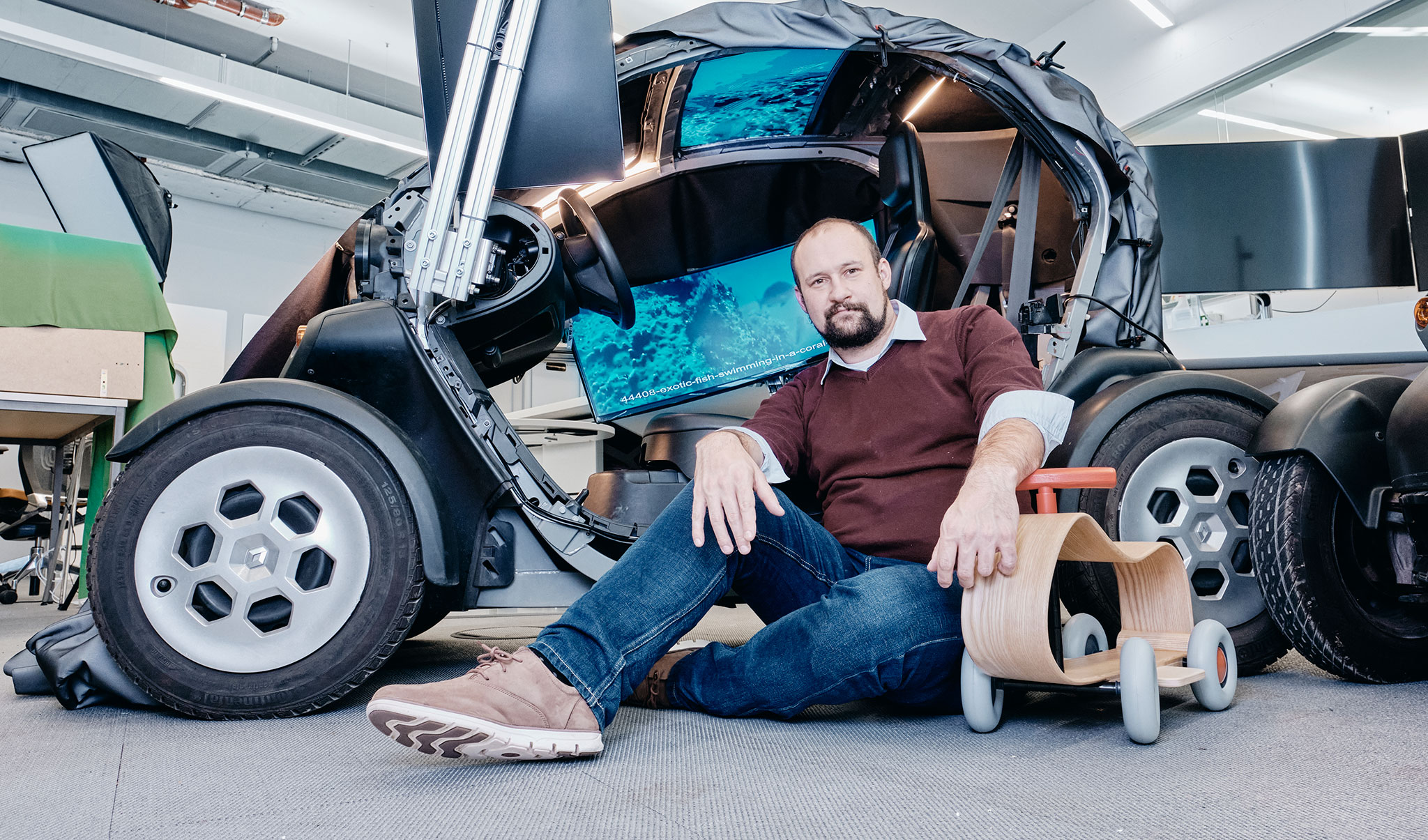In the right direction
The cars of the future will need design of the future. Find out how Fraunhofer is helping to restructure transport.
New times, new challenges – and new challengers. E-mobility pioneer Tesla, which launched on the German market in 2013 with its Model S, had reason to celebrate in October. The growth rates for Tesla vehicles registered in Germany were in the triple digits, marking an increase of 482.9 percent. German manufacturers saw a double-digit drop, with the exception of Porsche, which stayed almost stab-le at just minus 0.8 percent. Volkswagen, Mercedes, BMW and Audi have also taken on the challenge of e-mobility. With its research fab for battery production, in which ten Fraunhofer Institutes are involved, the Fraunhofer-Gesellschaft is helping to expand and strengthen Germany’s position as a leader in battery manufacturing technology. And yet it will take more than that to ensure Germany maintains this position and doesn’t slip down the ranks in terms of environmental rating and reputation.
Diversity – on our roads too
The cars of the future need mobility that’s fit for the future. Dr. André Häusler has warned against closed-mindedness when it comes to mobility. The expert from the Fraunhofer Institute for Laser Technology ILT in Aachen believes that diversity in transportation will become a necessity. He envisions different drive methods coexisting harmoniously – depending on where cars are used and what they are used for Need to fill up in five minutes and then drive 650 kilometers? Hydrogen is best for the job. Living in a rural area where charging points are hard to come by? A hybrid model with a combustion engine and an electric motor might be the best option. “In the coming years, car manufacturers won’t just have one drive type in their portfolio anymore,” says Dr. Häusler. “They’ll need to offer a separate solution for every need – hydrogen, electric, gas, diesel and hybrid models.”
